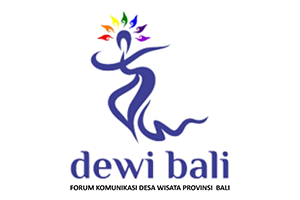Happiness and Unhappiness Stoic Tourist in Bali
Abstract
Stoicism is a philosophy that teaches the creation of a happy life. From a tourism perspective, stoicism is the primary goal of tourists visiting a tourist destination. However, some tourists visiting a destination have the opposite experience, feeling uncomfortable, anxious, angry, or even stressed while traveling. Therefore, it is essential to delve deeper into the connection between Stoic behavior and foreign tourists (foreign tourists) through research. Notably, research is needed on the stoic behavior of foreign tourists who enjoy services and products while traveling in Bali. Based on this, this research aims to analyze tourist happiness associated with the travel experience. Data collection methods include interviews, observations, and documentary studies. Respondents are European foreign tourists visiting Bali. The method used is qualitative descriptive analysis. Data analysis uses NVivo to answer the factors influencing Stoic tourists in Bali. This research found eight factors of happiness with the highest percentage. These factors include friendly people, beautiful nature, many tourist activities, delicious food, beautiful culture, a positive vibe, many experiences, and everything in Bali. In the future, stoic tourists will require more massive amplification so that tourism in Bali can be of higher quality and sustainable.
Downloads
References
Ariana, N., Antara, M., Budiarsa, M., & Sudiarta, I. N. (2021). Hedonic Happiness of Foreign Tourists in Bali. Journal of Indonesian Tourism & Development Studies, 9(3).
Ariana, N., Antara, M., Budiarsa, M., & Sudiarta, I. N. (2021). The Effect of Eudamonic Value on Product Services, Satisfaction and Happiness of Foreign Tourists in Bali. E-Journal of Tourism Vol.8. No.2. (2021): 265-282
Becker, L. C. (2017). A new stoicism: revised edition. Princeton University Press.
Edwards-Jones, A. (2014). Qualitative data analysis with NVIVO.
Engberg-Pedersen, T. (2005). The relationship with others: Similarities and differences between Paul and stoicism. Zeitschrift für die Neutestamentliche Wissenschaft und Kunde der Älteren Kirche, 96(1-2), 35-60.
Erskine, A. (2000). Zeno and the beginning of stoicism. Classics Ireland, 7, 51-60.
Fabjański, M., & Brymer, E. (2017). Enhancing health and wellbeing through immersion in nature: a conceptual perspective combining the Stoic and Buddhist traditions. Frontiers in psychology, 8, 1573.
Gnoth, J. (1997). Tourism motivation and expectation formation. Annals of Tourism research, 24(2), 283-304.
Hanna, W. A. (2016). A Brief History Of Bali: Piracy, Slavery, Opium and Guns: The Story of a Pacific Paradise. Tuttle Publishing.
Hilal, A. H., & Alabri, S. S. (2013). Using NVivo for data analysis in qualitative research. International interdisciplinary journal of education, 2(2), 181-186.
Hill, J. D. (2011). Becoming a cosmopolitan: What it means to be a human being in the new millennium. Rowman & Littlefield Publishers.
Hosany, S., & Gilbert, D. (2010). Measuring tourists’ emotional experiences toward hedonic holiday destinations. Journal of travel research, 49(4), 513-526.
Inwood, B. (2003). Stoicism. In Routledge History of Philosophy Volume II (pp. 243-273). Routledge.
Jackson, K., & Bazeley, P. (2019). Qualitative data analysis with NVivo. Sage.
Jackson, K., Bazeley, P., & Bazeley, P. (2019). Qualitative data analysis with NVivo. Sage.
Kim, J.-H., Ritchie, J. R. B., & McCormick, B. (2012). Development of a scale to measure memorable tourism experiences. Journal of Travel Research, 51(1), 12–25.
Lin, Chien-Hsin; Kuo, Beryl Zi-Lin (2016). The Behavioral Consequences of Tourist Experience. Tourism Management Perspectives, 18(), 84–91. doi:10.1016/j.tmp.2015.12.017
Maxwell, J. A. (2012). The importance of qualitative research for causal explanation in education. Qualitative Inquiry, 18(8), 655-661.
Maxwell, J. A. (2021). Why qualitative methods are necessary for generalization. Qualitative Psychology, 8(1), 111
Nussbaum, M. C. (2010). Kant and cosmopolitanism. The cosmopolitanism reader, 27-44.
Oh, H., Fiore, A. M., & Jeoung, M. (2007). Measuring experience economy concepts: Tourism applications. Journal of Travel Research, 46(2), 119–132.
Picard, M. (1990). “ Cultural Tourism” in Bali: Cultural Performances as Tourist Attraction. Indonesia, 49, 37–74.
Putra, I. N. D., & Paturusi, S. A. (2017). Metamorfosis pariwisata Bali: tantangan membangun pariwisata berkelanjutan. Pustaka Larasan bekerja sama dengan Program Studi Magister Kajian Pariwisata ….
Rossvaer, V. (2019). Nature as Stoic. Borderology: Cross-disciplinary Insights from the Border Zone: Along the Green Belt, 81-92.
Sherman, N. (2023). Stoics on Stuff. Heritage and War: Ethical Issues.
Swain, T. (2022). Way of The Stoic: Life Lessons From Stoicism to Strengthen Your Character, Build Mental Toughness, Emotional Resilience, Mindset, Self Discipline & Wisdom. Thomas William.
Vittersø, J., Vorkinn, M., Vistad, O. I., & Vaagland, J. (2000). Tourist experiences and attractions. Annals of Tourism Research, 27(2), 432–450.

This work is licensed under a Creative Commons Attribution 4.0 International License.
The copyright of the received article shall be assigned to the journal as the publisher of the journal. The intended copyright includes the right to publish the article in various forms (including reprints). The journal maintains the publishing rights to the published articles.




















